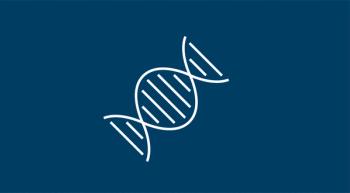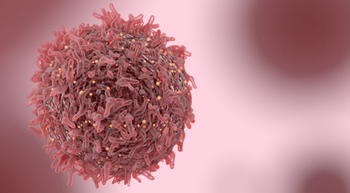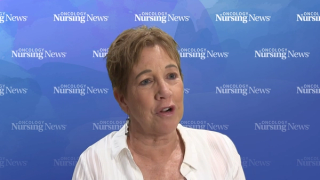
Breast Cancer
Latest News
Latest Videos

More News

La-Urshalar Brock, FNP-BC, CNM, RNFA, spoke about the oncology nurse’s and APP’s roles in managing chemotherapy-induced peripheral neuropathy in patients with breast cancer.

An APP’s research is focused on chemo-induced peripheral neuropathy in Black breast cancer survivors and its impact on their long-term quality of life.

An oncology nurse practitioner's transition from private practice to cancer research offers insights for nurses exploring new career paths within oncology.

Oncology nurses can educate patients about the potential indications for oncolytic virus therapy and connect them to available clinical trial opportunities.

Oncology nurses can educate patients on the implications of these findings

Ribociclib plus endocrine therapy shows PFS benefit in luminal B/HER2E breast cancer subtypes compared to chemotherapy, especially with low immune-related gene expression.

Additional exploration may help fully realize the impact of combining immunologic approaches with PARP inhibition, says one expert.

Baseline ctDNA presence was associated with larger tumor size and higher residual disease burden scores following neoadjuvant endocrine therapy in HR-positive, early breast cancer.

Perioperative atezolizumab did not improve outcomes in patients with triple-negative breast cancer.

A phase 1 trial of camizestrant with ribociclib appears safe and effective in patients with ER+/HER2- advanced breast cancer.

“This benefit in local recurrence translates into a later difference in distant recurrence and breast cancer [mortality], but it’s only apparent with long follow-up,” according to the study author.

Neoadjuvant camrelizumab paired with chemotherapy could represent a new option in early or locally advanced triple-negative breast cancer.

Palbociclib plus anti-HER2 therapy and endocrine therapy improved progression-free survival in the first-line maintenance of palbociclib in HR-positive, HER2-positive metastatic breast cancer.

High-grade immune-related adverse effects occurred in 18.9% of older patients with early-stage breast cancer treated with immune checkpoint inhibitors, according to a multi-institutional study.

Adjuvant olaparib continued to show a strong efficacy benefit in patients with BRCA1/2 mutation–positive, HER2-negative high-risk breast, according to 6-year data from the OlympiA trial.

Neoadjuvant patritumab deruxtecan demonstrated comparable responses with lower high-grade adverse effects in patients with high-risk, HR–positive, HER2-negative breast cancer.

Imlunestrant, alone or in combination, may provide an all-oral, targeted therapy option following progression for patients with ESR1-mutant, ER-positive, HER2-negative advanced breast cancer.

Most patients with triple-negative breast cancer experienced a protocol-defined immune response with an investigational vaccine, phase 1 data showed.

Surveyed individuals who identified as a racial or ethnic minority reported difficulties discussing cancer diagnosis and treatment.

With newer breast cancer treatments, it’s essential that nurses and APPs educate themselves and advocate for their patients.

Docetaxel was associated with lower rates of peripheral neuropathy compared with paclitaxel for Black patients with breast cancer.

A nurse practitioner discusses how breast cancer treatment can impact sexual health, and how nurses and APPs can guide patients through these effects.

Here’s a roundup of FDA approvals in the oncology space from October 2024.

While pregnancy-associated cancer risks increased with age, breast cancer during pregnancy tended to not impact obstetric risk.

Advanced practice providers discuss the second-line use of elacestrant in patients with co-mutated, ER+, HER2—advanced or metastatic breast cancer
























































































